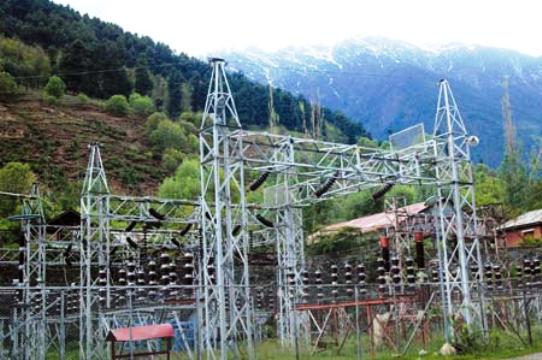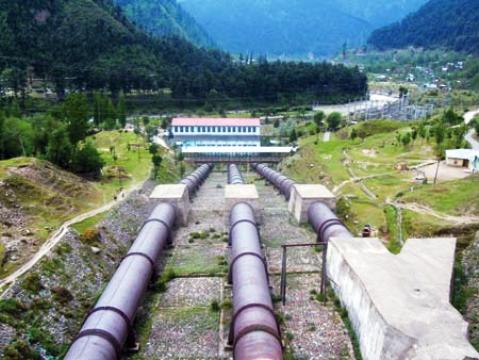Nazir Ahmad Shikari
Environment protection is the greatest challenge of existing human race but unfortunately every body of us has been adverse to it directly or indirectly. From a person who lives in a forest and burns wood and the person who lives in an air-conditioned room, travels in an air-conditioned car or a person who flies in air, everyone is responsible for its destruction. However maximum eyes fall on industry. When the industrial growth was promoted in the west the environment protection was least considered and the developed countries had already caused irreparable damages to the global environment before we started developing. As a result of their deeds we have reached to a stage where everybody talks of environment only and nobody about Industry. The fact of the day is that both Industry and the environmental protection are important and we can not promote one at the cost of the other.
While as we appreciate the concern of environmentalists and the regulators of pollution control norms for checking the pollution created by the industry but there is a feeling that rhetoric is being created by both these stake holders and it has become a game of win and loose for them. There is a need to change the mindset from the feeling and approach of winning a battle to the approach of solving a problem.
The development of industry in every economy is paramount for its growth which in turn improves the economic condition of its population. It has been established beyond doubt that the successes of majors of environmental protection have a direct co-relation with the economic condition of the common masses of a particular country. The environmentalists have not been able to achieve desired success in the countries which are economically backward, as such the environment and the industry have to co- exist and environmentalists and the industry have to work in close co-ordination to save the environment. The state of Jammu & Kashmir is at present facing worst kind of unemployment problems and the youth feel frustrated due to lack of job opportunities. The development of industry is the only way we can tackle this problem, as such everybody needs to encourage industry and at the same time ensure that it is not done at the cost of environment. However the industrialists while striving for more and more production have to ensure that it is clean production.
The state of Jammu & Kashmir is at present facing worst kind of unemployment problems and the youth feel frustrated due to lack of job opportunities. The development of industry is the only way we can tackle this problem, as such everybody needs to encourage industry and at the same time ensure that it is not done at the cost of environment. However the industrialists while striving for more and more production have to ensure that it is clean production.
In the state of Jammu and Kashmir there are no large industries, almost all the units are in small & micro sector. The SME sector globally is facing severe hardships in meeting the ever changing pollution control norms due to lack of adequate technology and capital required for technology up gradation. In contrast required capital becomes easily available to the large industry.
In our state a section of environmentalists seem to be averse to large factories and advocate for only small and comparatively green industries like agriculture and tourism; however we have experienced that these sectors too have their inherent limitations to sustain an economy on a long term basis. The collapse of tourism industry in J&K in early nineties due to disturbances is an example. In our opinion we need to make our state self reliant in as many fields as possible to sustain our economy on a long term basis for which we have to set up industrial units both large and small of various categories so that we reduce our dependence on imports. Our state at present has become a consuming state and we have to depend on imports from other states in every item or article we need.
While advocating for mass industrialization we do not disown our responsibility towards our environment. We as industry welcome all the policies and regulations framed by the regulators in order to protect our environment. However I would request the environmentalists as well as regulators not be happy in closing down an industry. As the modem technologies have been developed we can surely solve the problem of a polluting industry without closing it down.
I would take this opportunity to draw the attention of the State Government and J&K pollution control towards few points of our concern.
In the valley of Kashmir majority of the units fall in the “Green classification” of the pollution control Board norms. There are very few units which fall under “Red” or “Orange” categories. However the procedure adopted by the board for issuing consents to operate is same for all the categories. While we want the pollution control board to be very vigilant and tough in the red category industries like cement and Mining areas the green category units need to be released from the cumbersome paperwork and follow-up. At present the applications of all categories are being disposed off either at Regional office or at central office levels. As these green units are small and micro level these are mostly run and managed by the individual owners themselves and can hardly afford to have additional staff to pursue their cases in various offices. The industry feels that the Green category unit holder’s pollution clearance should be accorded by the General Manager District Industries centre. The procedure is already in vogue in some other states of the country (example Punjab) where the Powers of granting consent to operate in case of a green category unit lies with industries department and the department in turn sends a copy of the said consent letter to the pollution control board. Similarly there are many units who need pollution control clearance only for running generator sets of small capacities this can also very easily be monitored by the district industries centers.
In other categories like orange and red the consent letters and the renewal letters need to be given in a time bound period and every application should be disposed of within a period not exceeding one month so that the unit holder is not forced to visit the offices of pollution control board.
Another issue which we would like to mention is the renewal consent letters issued to stone crushing units. The consent letters issued are made subject to the objections of the people from the vicinity although the board is satisfied with the pollution control devices installed by the unit holders. In most of the cases the population in the vicinity of a stone crushing unit comes much after the day the unit gets established. We feel that once the regulator issues consent to operate and is satisfied at the time of renewal that adequate pollution control devises have been installed the consent letters should not be made conditional.
The Industry also feels that the amount of consent fee charged by the board is on higher side particularly for a new entrepreneur which may be re examined and reduced so that it becomes affordable for a new entrepreneur.
Author is senior member of FCIK













